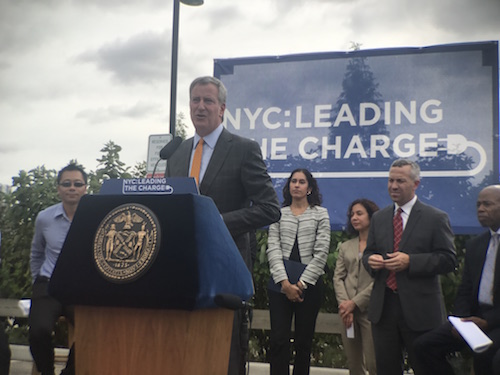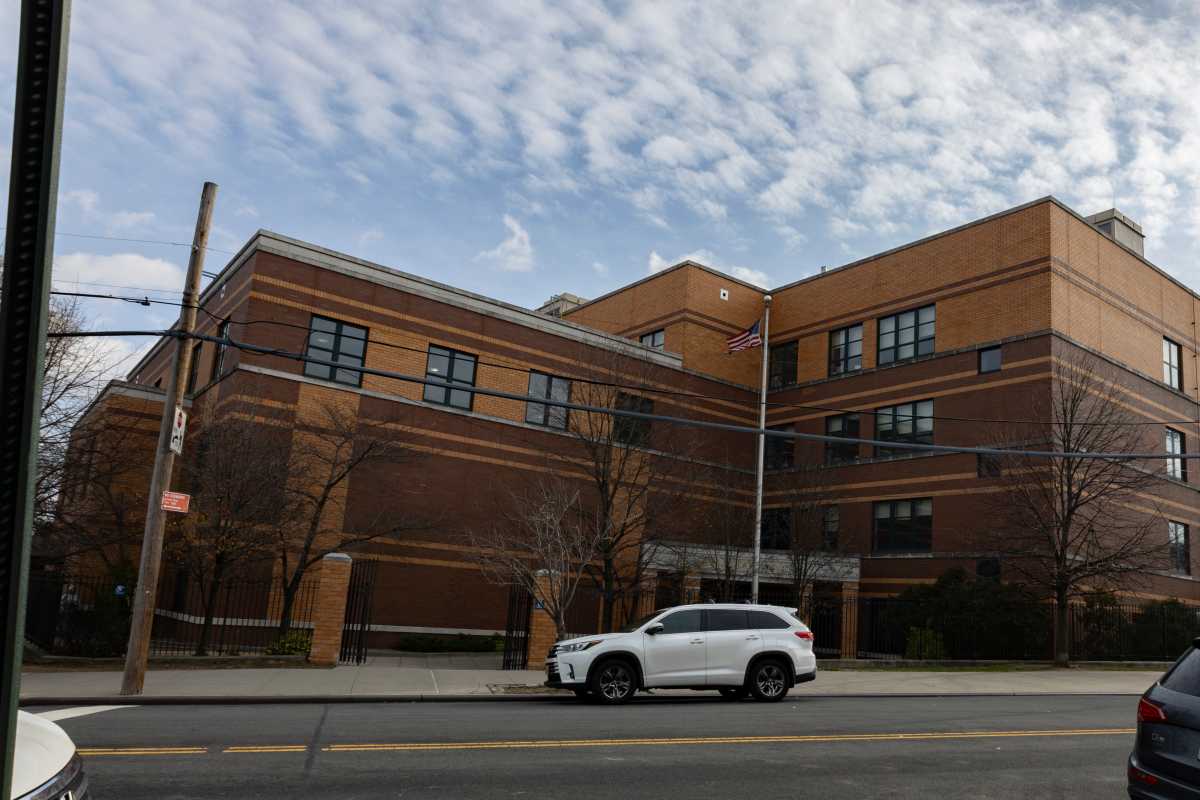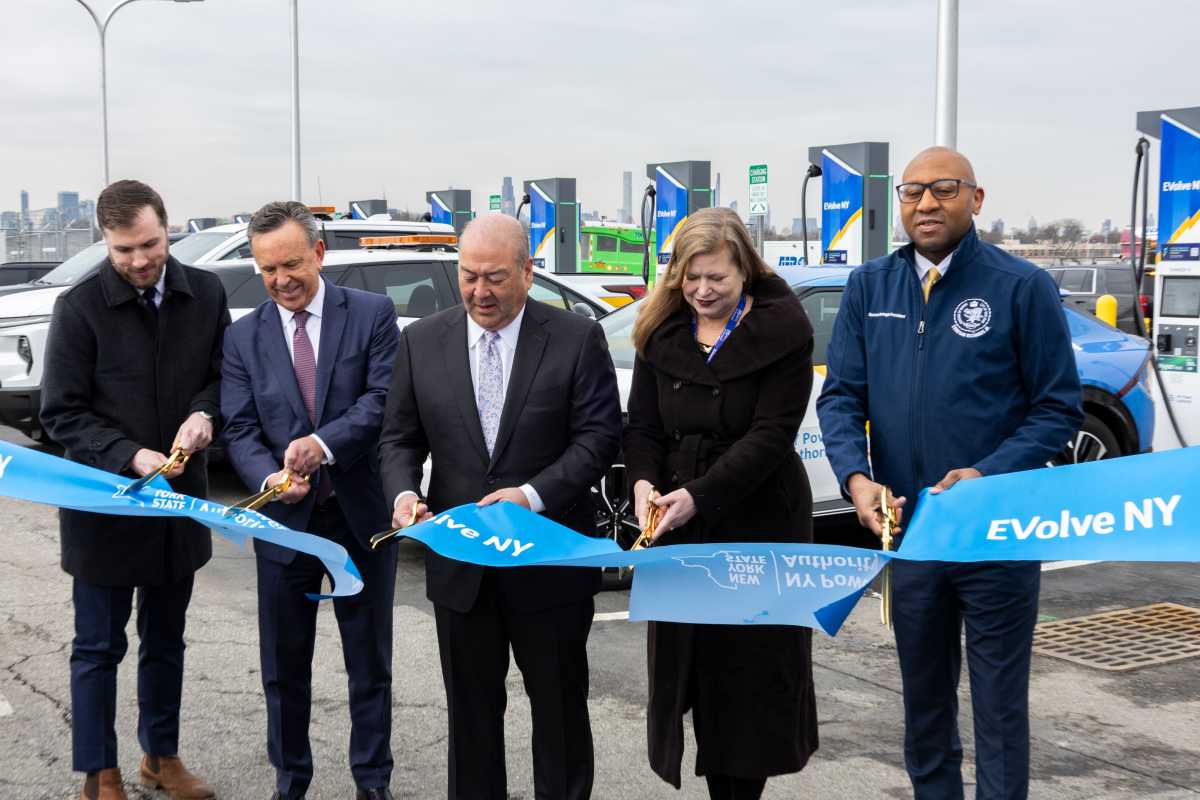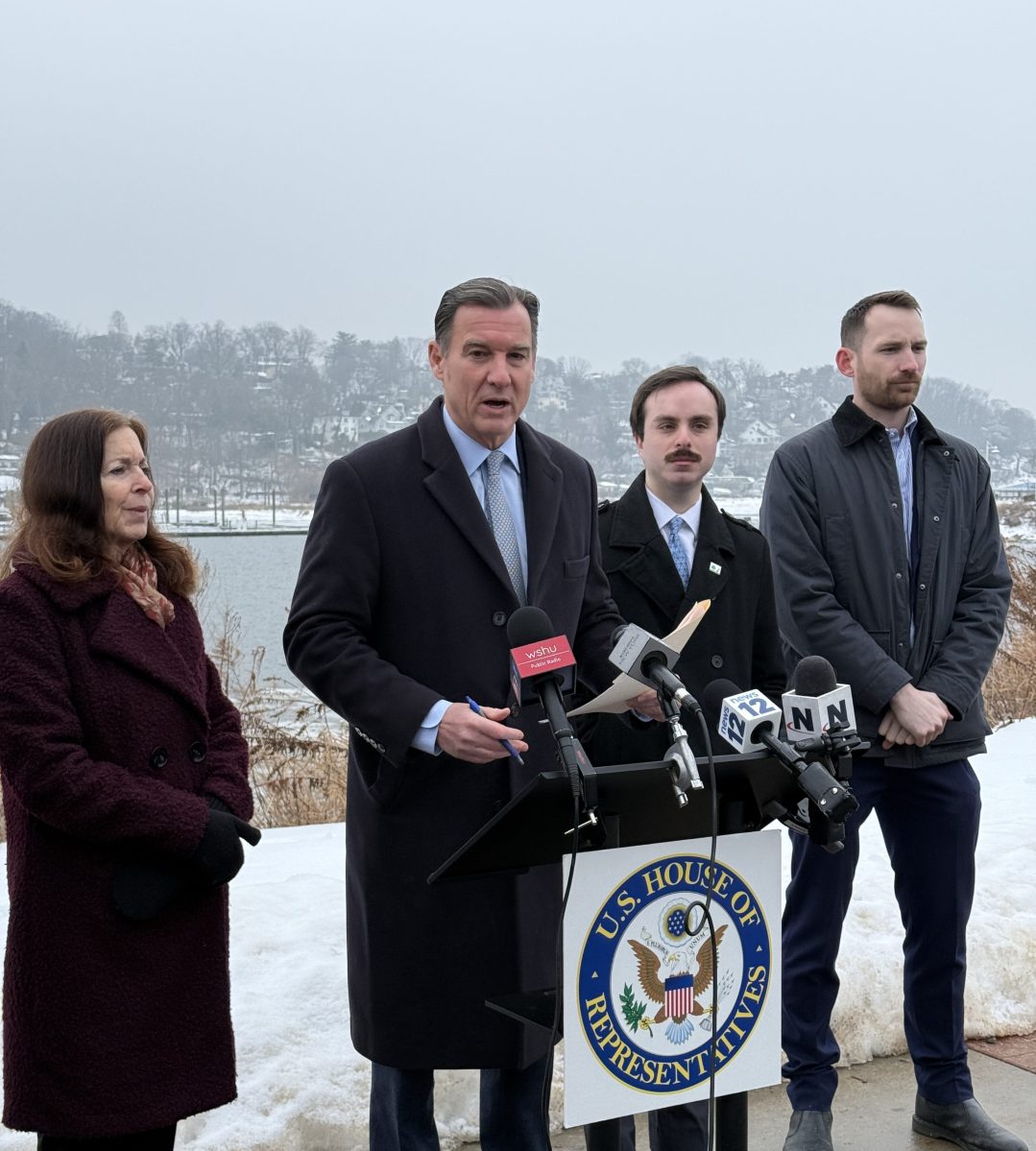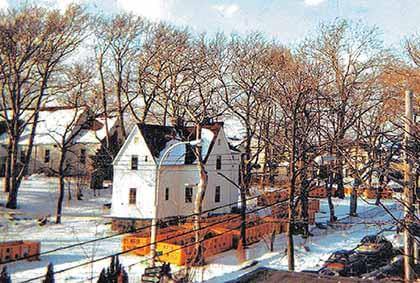Nestled between two wind turbines in the parking lot of the Gowanus Whole Foods, Mayor Bill de Blasio today announced the city’s plan to install five fast-charging electric car charging hubs as part of the administration’s move to reduce greenhouse emissions 80 percent by 2050.
The mayor promised to have at least one fast charging hub in every borough by 2018 with a plan to have at least 50 hubs throughout the city by 2020 as part of his administration’s aggressive emission reduction plan implemented after President Trump’s decision to withdraw from the Paris Agreement.

“This is nothing less than an existential threat and every person, every city, every state and every nation has to be part of the solution,” said de Blasio as he blamed the series of hurricanes that have severely impacted the Caribbean, Texas and Florida on climate change.
The joint effort between the city and Con Edison will provide 20 stations per hub during the initial run of the program slated to begin in 2018. Future hubs will house from four to 20 stations per hub.
Today’s press conference comes on the heels of last week’s announcement to mandate building owners to comply with new emission regulations or face steep penalties for non-compliance. The mayor said the city would provide financial support to assist with building retrofits, however. While fossil fuels used for heating and hot water contributes the greatest to greenhouse gas emissions in New York City, the mayor said cars that run on fuel are second.
“Electric vehicles are an important part of the solution,” said de Blasio.
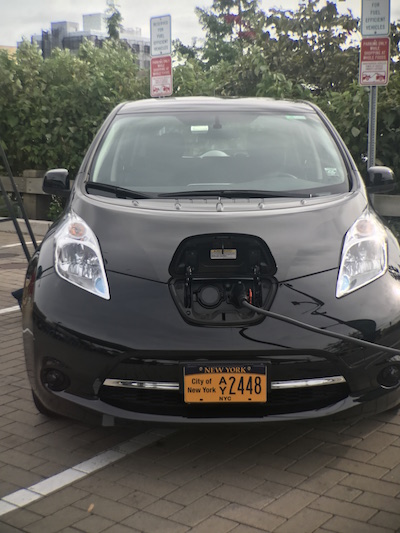
The new fast-charging hubs will reduce charging time from eight hours to 30 minutes. The combined five hubs throughout the city will allow over 12,000 vehicles charging capabilities within a week.
The price tag on the city’s latest venture is expected to cost $10 million. The mayor said installation costs thereafter would be less because hubs are likely to house less stations. Whether or not Con Edison will be part of the program after the initial plan was not specified.
Hizzoner’s message to New Yorkers was –– if you need a car, its time to recognize the future is electric. “Based on this announcement and other measures we’ll take, our goal is to have at least 20 percent of all new vehicles in New York City to be electric by 2025,” said de Blasio.
Councilmember Costa Constantinides (D – Astoria, East Elmhurst, Jackson Heights, Woodside), who authored legislation to sustain more sustainable energy with clean heating oil, was also in attendance to provide some statistical evidence in support of the mayor’s plan to make charging stations more accessible.
“Every day millions take cars on the streets of New York and those cars emit dangerous gasses from their tail pipes,” said Constantinides.
Borough President Eric Adams and City Councilmembers Brad Landers and Ydanis Rodriguez were also in attendance to show their support and tout the city’s efforts towards lowering emissions with programs such as CitiBike, light rail, shared rides and increased ferry service.
On the topic to reduce the carbon footprint of city employees, the mayor said his goal is to have an all-electric car fleet for the city with the exception of emergency and first responder vehicles that may require other options.
“My SUV now is a hybrid,” said the mayor, who takes a motorcade of SUVs to the Park Slope YMCA from Manhattan’s Gracie Mansion to work out several days a week. “I would love to get it to electric, that’s something we’ll have to decide with the NYPD.”


